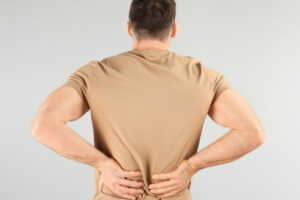Florida Slip-and-Fall Law Favors Businesses

The slip and fall accident is one of the oldest stories in the book. A person slips on the floor of a business or of another person’s home, and tries to bring suit under a theory of negligence to try and recover for their medical bills and lost wages. In Florida, this is much more difficult than it is in many other states, because of the way the relevant law is written. However, it is certainly not impossible to succeed in a slip-and-fall suit, if it is attacked the right way.
Common Law Sets High Duty
The area of law that deals with slip-and-fall accidents is called premises liability, and it has evolved from English common law. It holds that the person who is in control of land (or a business on the land) has a duty to make that land as safe as possible, and to warn for things they cannot make safe. Under this legal theory, every person who enters onto land (or into a business or home) is grouped into one of three categories, and it is this classification that establishes the exact duty of care that they are owed.
A person is either an invitee, who is a person specifically invited to the premises for a purpose that serves the owner (i.e. a business customer who intends to buy something); a licensee, who is a person allowed onto the premises for business of their own (for example, a neighbor kid looking to enter your yard to retrieve a thrown ball would be a licensee); or a trespasser, which is fairly self-explanatory. Child trespassers are a separate category, but those cases are unique. The duty to an invitee is higher than it is to a licensee or trespasser – in theory, the customer at a business is owed the highest duty to exercise reasonable care.
Florida Statutory Law Lowers It
Common-law principles were followed in Florida for many years, and are still in effect in many other states. However, the law was changed in the past decade, shifting the burden of proof from the defendant to the plaintiff. In other words, where the defendant used to have to show that they did all they could to make their premises safe, the plaintiff now has to show that the defendant did not do all they could. The distinction is fine, but important, because the plaintiff may not have any idea about the steps the defendant took to make their business or their home safe for visitors.
The law now states that the injured person must show that the business “had actual or constructive knowledge” of the danger, and “should have taken action to remedy it.” This means that an injured person, who might have been in the store for less than five minutes before they were injured, must somehow show the court that the business either knew or should have known that a slipping hazard existed, and that they did nothing about it. In some cases, this may be possible – but it will be infinitely harder in many others.
Call An Orlando Slip & Fall Lawyer
Because Florida premises liability law sets such a high bar for plaintiffs to meet, you need a slip-and-fall attorney who will fight for you and your rights. The skilled Orlando slip-and-fall attorneys at the Hornsby Law Group know the law, and will work hard to ensure that you get your day in court. Contact us today for a free consultation.
Resource:
leg.state.fl.us/Statutes/index.cfm?App_mode=Display_Statute&URL=0700-0799/0768/Sections/0768.0755.html
